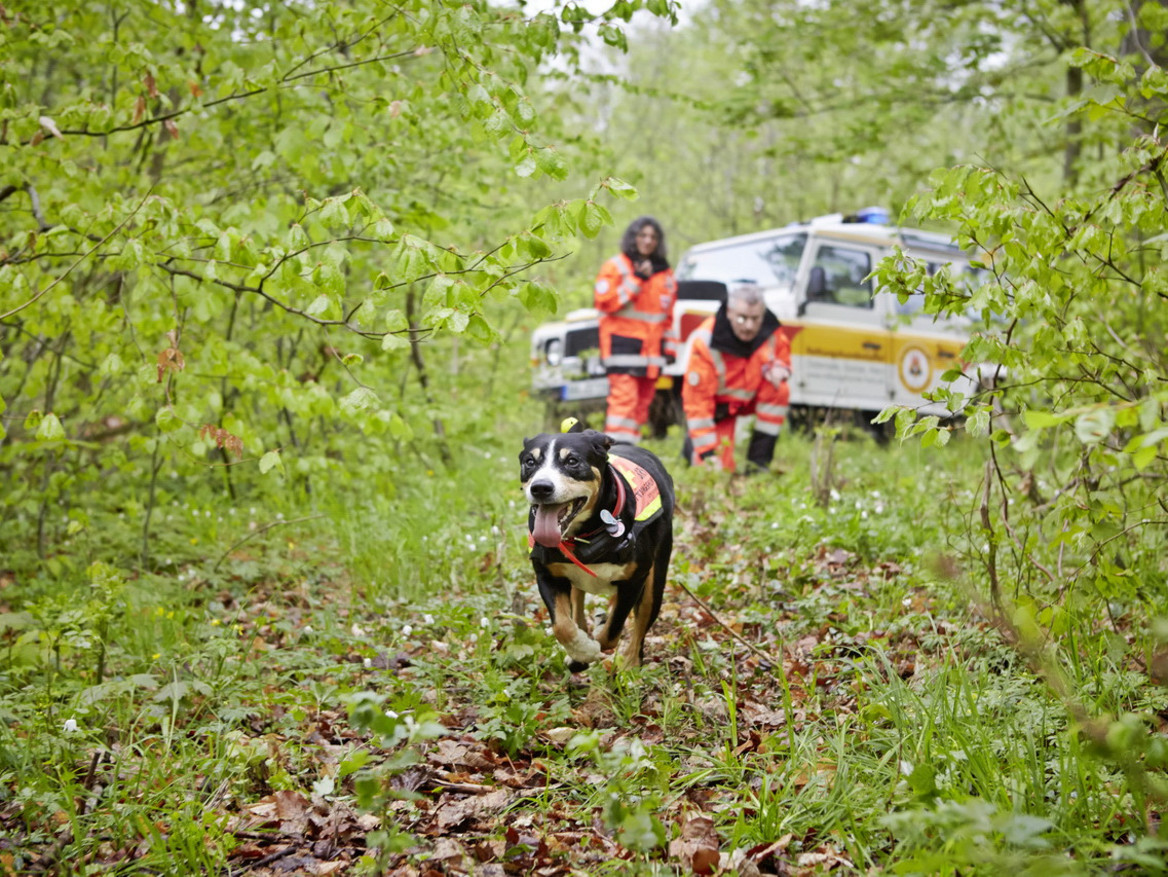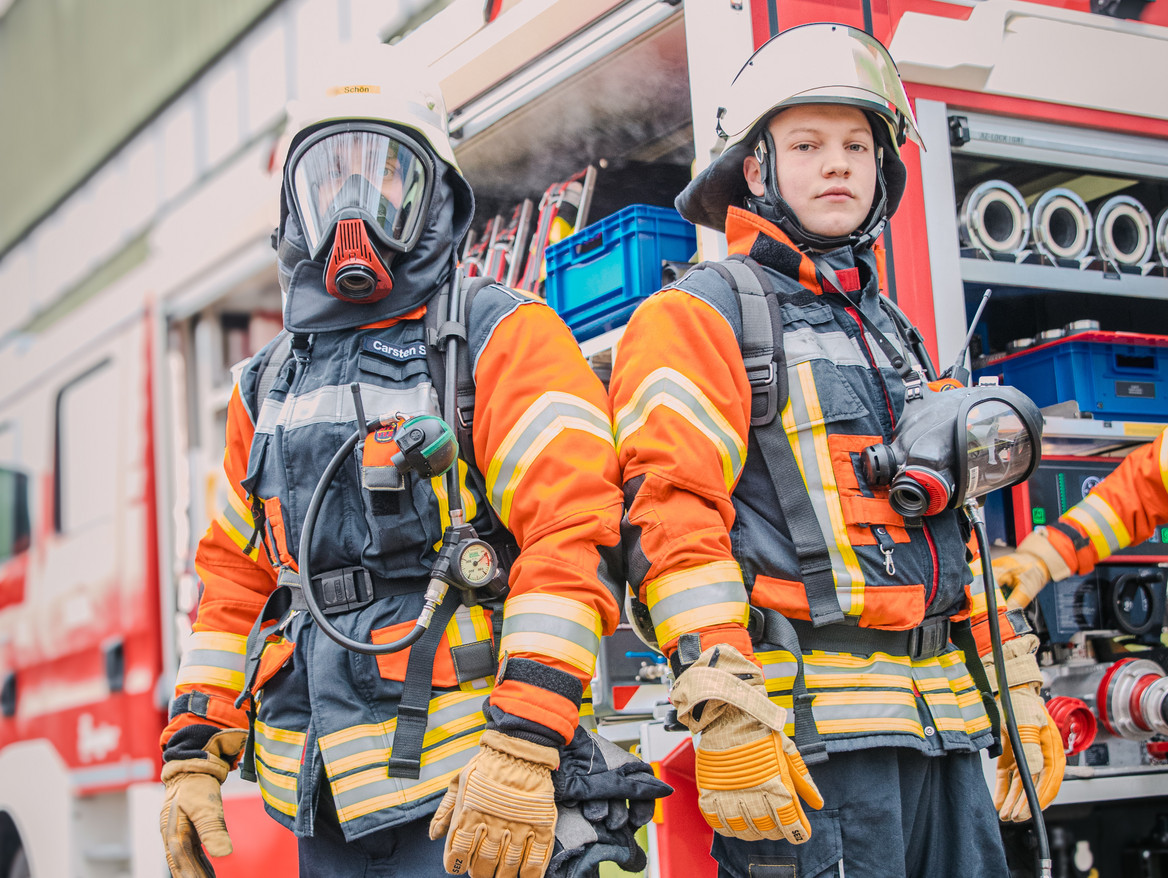The first question to ask yourself is: what do I want to achieve in my professional life? For many people, this is one of the most important questions they will ever ask themselves. The possibilities are almost endless, and with motivation and dedication, growth is always possible. Even without a university degree.
Did you know? The Industriemeister qualification (certified industrial supervisor) is officially equivalent to a bachelor's degree, as are the Fachwirt (certified business administrator) and Staatlich Geprüfter Techniker (state-certified technician) qualifications. The Technischer Betriebswirt (technical business administrator) corresponds to a master's degree. All of this is set out in the German Qualifications Framework.
Wir.Hier. presents two fictional examples of how employees in the chemical industry can build a career.
From Secondary school graduate to head of coating production
Tamara ist a 16 years old Secondary school graduate (Realschule). Her goals: A job that’s fun. Not just sitting at a desk. And a good work-life balance.
Step 1: Vocational training as a chemical laboratory technician
Even during training, many already have an idea of where they want to go later on. Some want to work closely with customers, while others are drawn to research or jobs abroad. There are suitable continuing education options for trainees in all of these areas, including language courses, international placements, and seminars on social skills, learning techniques, and software. Those willing to go the extra mile can even work towards a university entrance qualification alongside their apprenticeship.
Tamara is training to become a chemical laboratory technician. As part of her training, she is completing an internship in the United States.
Step 2: Further training to become a certified industrial supervisor
After three years working in coatings development, Tamara decides that she wants to become a certified industrial supervisor specialising in chemistry.
What do industrial supervisors do?
Those in the chemical sector plan, monitor and optimise production processes, lead team members and are responsible for quality control. This qualification can lead to roles such as shift supervisor, department head, or even production manager.
How long does the training take?
This depends on the learning format and training provider. The full-time course takes four months to complete, whereas part-time options can take up to 36 months. Tamara chose a Saturday course. For 16 months, she spent seven hours every weekend in class.
She passes! After earning her qualification, Tamara became head of a subdivision in coating production.
Step 3: Further training to become a technical business administrator (IHK)
After five years in that role, Tamara wants to take the next step. She decides to become a technical business administrator.
What do technical business administrators do?
This qualification opens the door to roles in management, sales or procurement. It is officially equivalent to a master's degree. Tamara has now been given overall responsibility for coating production.
How long does the training take?
Depending on your weekly time commitment, the course takes between three months and two years to complete. Tamara opted for an 18-month distance-learning programme, which she completed alongside her job. She is also a mother now, so being able to organise her study time flexibly is very important to her.
From chemical technician to vocational training educator
Steffen, 34 years old, is a Chemical technician (Chemikant). His goals: Take on something new, share his knowledge and take on more responsibility.
Step 1: Trainer qualification exam
Steffen has worked as a chemical technician for 13 years. He feels it is time for a new challenge. His first goal is to earn the trainer qualification certificate.
What is the trainer qualification exam?
Anyone who wants to work as a vocational trainer in Germany needs the Ausbilderschein, or trainer certificate. Candidates must pass an exam consisting of a written multiple-choice test and a practical assessment to get it. Taking a preparation course is recommended. These courses range in length from a few days to around three months. Steffen opted for an online course, which allowed him to organise his study time flexibly.
Step 2: Certificate course to become a chemical technician
One year later, Steffen decided to expand his skills further by pursuing additional training to become a chemical technician (Chemietechniker). This qualification is equivalent to a bachelor's degree.
What do chemical technicians do?
They can take on middle management roles, such as lab supervisors, trainers or quality assurance roles.
How long does the training take?
Full-time training takes around two years, while part-time options typically take three to four years. Steffen completed the programme part-time over three years while continuing to work. He will finish at the age of 38.
Step 3: Further training to become a certified vocational training educator
Initially, Steffen worked as a team leader in additive production, supervising trainees as a qualified chemical technician. He finds sharing his knowledge incredibly rewarding. At the age of 44, he decided to specialise further by becoming a certified vocational training educator. Like the Industriemeister and bachelor's degree, this qualification is classified at the same level, but it opens up additional opportunities for Steffen.
So, what do vocational training educators do?
They design and coordinate company-based training and development. They motivate and support trainees and colleagues, develop training plans and learning programmes, and manage quality in the education process.
How long does the training take?
Steffen opted for an intensive programme lasting just eight weeks. His employer releases him from work to attend. Other courses can take up to two years, depending on the format.
Steffen becomes head of vocational training at his company — his dream job.




